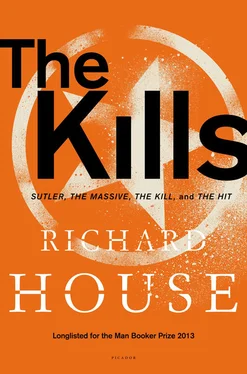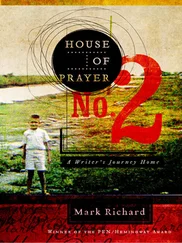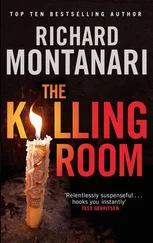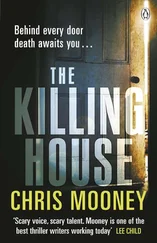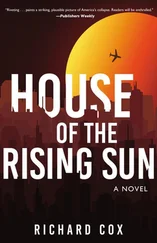6.5
Sandro arranges to meet Gibson at a small restaurant close to the street market and the Montesanto station. The restaurant is reached through a long tiled corridor, barrels of fat obstruct the entrance. Inside, the tables and chairs are mismatched. Knives and forks and paper napkins sit centre-table in open cans. Gibson finds Sandro already seated. He explains there is no menu, if Gibson tells him what he likes he can order.
‘You speak Italian?’
Gibson apologizes, no. ‘I learned French and Italian at school. I was passably good. But my wife had a command of languages. It makes you lazy. It takes from you what you know.’
Gibson hopes his story will prompt information from Sandro. He holds to this notion of Sandro as a family man, pure Italian, realizing that such assumptions cannot be made, not these days. Sandro asks if Gibson really has a daughter.
‘That was ingenious.’ His smile is genuine. ‘You are a natural. But why did you have the money? The story would have worked without the money.’
Gibson doesn’t know. ‘I wanted leverage. I thought a lot of money would make me look serious.’
‘I’m not sure that he believed you, but it’s interesting that he went along with it. I must remember this. It isn’t the story at all, but the conviction with which it is delivered. The money is something else, a distraction. Maybe this is part of it?’
Flattered, Gibson says he isn’t so sure.
‘You understand that we needed to make a gesture. Twenty policemen make everything look serious in the way that we need to look serious. We speak with people, they tell us nothing. We go back and make a little noise, and maybe next time they will be more helpful.’ Sandro broadens his smile. ‘I doubt it, but this is the tactic we like to use. Force has no meaning unless you deliver once in a while. You cannot always hold up your hand in warning. Sometimes it is necessary to strike. We have a little information because of it. Some of it is useful.’ Sandro speaks about the man in the singlet, the woman with the glasses. ‘They admitted they had made a mistake earlier when speaking with me, and that there was indeed a man staying with them, who was there for ten days, and who caused them no disturbance while he stayed. The Hotel Sette does not keep precise records, as they should, but they recognize the man in the picture and say that he was German. I would question this a little, but they were certain that he was German.’
A waitress approaches the table and Sandro speaks with her.
‘Do you like hot food? Spices?’
Gibson says that he would rather have something plainer, a cutlet if they have it, and Sandro nods, and places the order. The woman listens but writes nothing down.
‘So, I think this is all we will discover. I think they have told us what they know. They spoke with the man but have no idea where he was going. He left the same day as the incident in Rome. He paid the night before and took his bags early in the morning. There was nothing in the room. In fact, it looked like he had not slept there, but sat at the window. There is no record of him arriving at the Stazione Centrale, he is not on any of the video we have collected. Which does not mean, of course, that he was not there.’
* * *
While they wait for the food Gibson calls Geezler. This needs to be explained. Geezler has the photograph, but does not know about the search of the hotel.
Gibson lays out the situation. Parson, it appears, was being followed, and while they have not yet linked this man to his death, the possibility is looking strong.
‘The police think that we have as much information as we are going to find. They can make the photograph public, but it seems counterproductive at this point. I’m not sure. If nothing else is discovered they are going to have to use it.’
In his exasperation Geezler says that this wasn’t supposed to happen. Parson was hired to find Stephen Sutler. Instead, what do they have? They have a situation which is increasingly hard to control. Worse. They now have information, so destabilizing, it cannot possibly go forward to the hearing. Gibson himself should not attend because this evidence, this photograph, this coincidence, cannot be presented at this point as it will cause much too much disruption. Does Parson understand what is at stake? HOSCO, apparently dissolved, survives as a network of companies, a new constellation of associated concerns which orbit the new company CONPORT. Who knows, in future years these elements might coalesce, conjoin. This future is now in doubt. If these rumours increase about the old company and gather any more pace, any kind of survival, for CONPORT, for Geezler, for Gibson & Baker is in jeopardy. I only have control because I have cut out the problem and appear to have established order. Everything will be lost. The implications are vast. Unthread this and we undermine our very presence in the Middle East, how every company manages itself on foreign soil. Does he understand?
The waitress hurries past him, runs across the street to the market and returns with a single raw pork chop on a plate. Gibson looks at the bustle. There is an intelligence at work here. He watches the crowd and considers how its movements are constrained. The produce, water-filled buckets of clams, sardines, he isn’t sure what kinds of fish, the plates of squid and tubs of octopus, and either side the vegetable stalls, are set out in blocks of colour, organized mounds of tomatoes, bundles of greens, onions, garlic, peppers, everything classified by size and kind. Superimposed on this is the disorder of the crowd, who come and go, return, haggle, argue, pinch, taste, converse and pay. There are two elements, the seller and the buyer, which appear hectic, but are contained and controlled by two basic principles: the need to sell and the need to buy. In this regard, it isn’t hectic at all.
When he returns to the restaurant Gibson asks Sandro what he knows about HOSCO. Supposing Parson was right — entertain the idea — but if he was right, and the man who chased him across the tracks, the man who is responsible for his death, was commissioned by HOSCO. Supposing. What would happen next?
Sandro sets his elbows on the table. ‘It’s interesting. Do we assume the man who was after Parson wasn’t Stephen Sutler?’
‘Laura’s photograph doesn’t match the picture we have of Sutler. We have the one photograph from an ID and it looks nothing like this man.’
‘Then we imagine that this is something different. He was not finding the man he was sent to find. Instead the issue becomes more complex, because he helps to make it complex.’
Gibson can’t quite organize the thought. ‘Think of what is supposed to happen. The design. What was intended. Not about what has happened.’
Sandro asks him what he means.
‘I was speaking with Paul Geezler, and he is frustrated because this can’t be controlled. Parson. Sutler. It is too chaotic now. There is too much attention. And it continues to make damage.’ Gibson wants to distil recent events to their essential intentions, to reduce everything back to what was supposed to happen. ‘Parson was supposed to find Sutler. Not finding Sutler becomes a problem, because Sutler is still active. He is still getting attention. Making noise. Making more noise perhaps. If you eliminate Parson, then you eliminate Sutler. Because if no one is searching for Stephen Sutler, then he is no longer a matter of attention. So what would be the next step?’ Gibson looks up. ‘Or is this all over?’
Читать дальше
